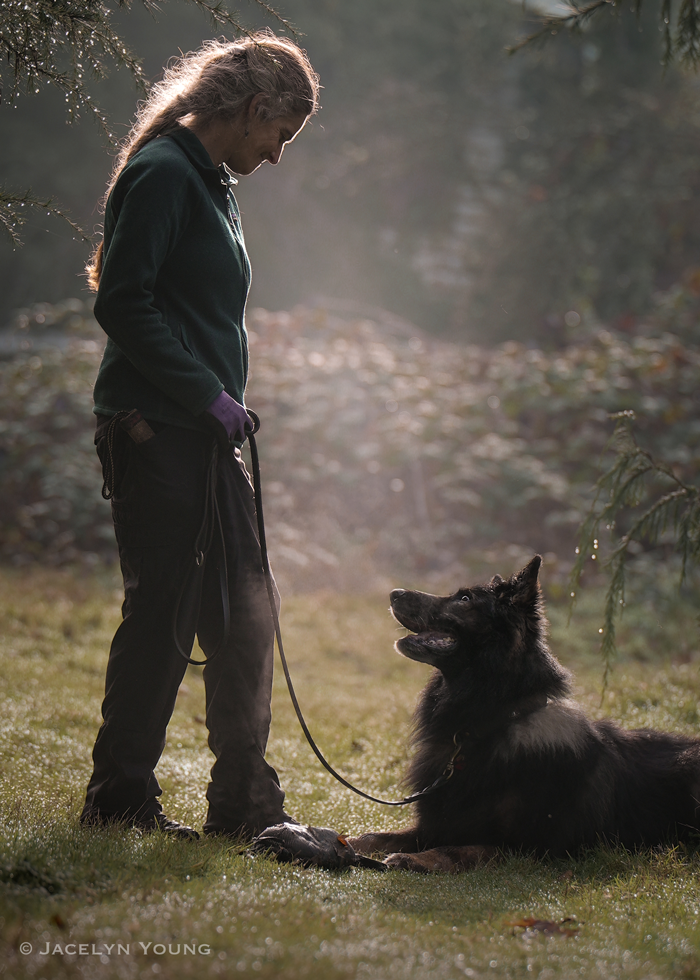ABOUT
Shade Whitesel

At age 4, I told anyone who would listen that I was going to grow up to be a dog trainer (so my mother tells me.) I taught my childhood dog tricks, complete with jumping over bushes and the swing-set (this was pre-agility sport!), and made/begged the whole neighborhood to attend the shows for 10 cents each.
After I completed my BA in English at The College of Wooster in Ohio, I bought my first German Shepherd and have been in love with the breed ever since. That fascination led me to Schutzhund, which is a breed test for GSDs and to competitive dog sports, which in turn led me to teaching lessons to other dogs and their humans.
In 1994, I achieved my dream and took the plunge into dog training for a living. To get the education to become a dog trainer, I worked as a kennel manager, a veterinary technician, a dog groomer, and attended many continuing education seminars and workshops to attain the knowledge I now use. These days I compete in Schutzhund and AKC obedience with my current dogs, teach handlers how to play with their dogs, and teach humans how to teach their dogs to live in this complexing world, as well as problem solving behavior of all kinds, including aggression.
I’m passionate about the working/sporting breeds and I want our teaching and communication to be clear. Our dogs have strong opinions, and they often tell us (if we listen) when they understand what we are teaching, or are frustrated. I want “buy in” from my companion, and that allows me to adjust my training plan in the moment, working “with” my dog instead of against them.
Currently, I would consider myself a clicker trainer. What that means to me is that behavior is the dog’s choice, and it’s up to me to control their access to reinforcement and teach and motivate the dog so that he chooses what I want.
That lightbulb moment when the dog hits on the right behavior and then repeats it again, I love that! I believe that when you respect the dog as a thinking partner in the learning process, you come away with a much greater understanding of why he acts the way he does, and can create strong, confident and clear behavior skills.
Over the last 30 plus years of training dogs, I’ve used all sorts of tools, including e collars and prongs, treats and toys. These days, I’ve morphed into using primarily positive reinforcement and I’m committed to reaching a high level in IGP (Schutzhund) and AKC obedience with my personal dogs. I’ve been at the IGP National level before with my dog Reik and I look forward to seeing what my latest puppy Ion and I are capable of!
Seminars and Events
A few times a year, Shade presents seminars or participates in in-person training events. Popular seminar topics are below.
Toy Seminar: Toy play/marker cues: Creating a Thinking Reinforcement
Do you have a dog that chases the ball, yet won’t bring it back? Plays keep away with toys? Tugs but won’t let go? Bites you instead of the tug? Obsesses over toys, yet won’t listen to a single thing you say? Is your dog so high in drive for toys that he can’t think? Or do you just want to channel that prey drive right from the beginning and add the attitude your dog has for tugging or chasing toys to the obedience ring?
If so, this seminar is for you! Join me as we explore how to play games that channel those feelings. Playing with toys with OUR rules creates a dog that plays with us instead of against us! We are specifically intending the toy play to be used as a reinforcement for sport behaviors, which makes this seminar a wonderful foundation for most sports.
This workshop is most appropriate for dogs that are attracted to toys but need fine tuning in how to play with them. We include ways to build drive for toys but generally, dogs with little or no interest in chasing and biting toys will have limited success in this seminar. The tug part of this class can be quite physical on the handler, so wear gloves and expect to gain some bicep muscles!
It is strongly recommended that you have taken the online FDSA Toys: Developing Cooperation and Play so that you are familiar with the material.
Food Marker Seminar
Reinforcement drives behavior, right? What if your dog cares what type of reinforcement they get and likes some more than others? What if specific types of reinforcement carry different arousal/excitement and you can take advantage of that in your training, whether sports skills or for general behaviors? And in the meantime, how about adding clarity to where and how to collect the reinforcement, something that highly motivated toy dogs could definitely benefit from.
We’ve all been using a clicker or a verbal word like Yes to mean “collect reinforcement” to our dog. Now let’s think about slicing up that clicker and making it more concise and clear to your learner dog.
Having verbal cues that tell your dog where to collect reinforcement and what exactly that reinforcement is can be so mind blowing and complicated for the handler, but it clears things up and makes things so much simpler for the dog! The dog can devote their entire concentration to listening to you and performing the behavior skills instead of watching your physical motions as predictors of where and when the reward is coming.
A side benefit of teaching and using this concept is that it incorporates “switching reinforcement” and also teaches “no”. If yes means “food from the hand”, it also means not food on the ground, or the ball on the chair, or that other dog over there, extending all the way up to “Not that deer”! Teaching your dog this concept with reinforcement you control can only benefit your training in sport and real life skills that often bring about interactions with reinforcement you cannot control.
Spaces in Between
Do you have a dog who vocalizes and whines during trial or seminar downtime? Gets so excited that they mess up the first couple skills in a trial? Doesn’t rest at all so that when you get to the actual skill part of the trial, they are exhausted?
This workshop is for you! Connected walking from pt A to Pt B, settling before and after, protocols to “hear” your words are all vital skills that equip our dogs not only for sports behaviors, but real life as well. Additionally, we’ll be covering food markers on the first day, and some offered behavior skills on the second along with the afore mentioned skills.
Tracking Workshops
Do you want to know the steps towards teaching successful footstep tracking? Whether for sport or real life precision, good foundations are a must. I cover how to create value for tracking, how to teach different “pieces” of the overall skill, article indications, why articles matter so much, how to fade the food much quicker than traditionally while still keeping preciseness, line handling for handler and dog and why that matters.
And then we track. And track some more. I believe in doing and this is a “get your steps in” type of workshop, real life in the moment problem solving. I’ve achieved 100 out of 100 points on 3 separate dogs, one at Regionals, and one at the National level and tracking is by far my favorite thing to do with my dogs.
